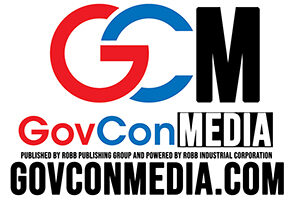
I. Introduction
Securing government contracts can be a game-changer for businesses of all sizes. Not only do these contracts provide a stable source of income, but they also offer numerous opportunities for growth and expansion. However, navigating the complex world of government contracting can be a daunting task, especially for those who are new to the process.
In this article, we will provide you with valuable insights and practical tips on how to get more government contracts. Whether you are a small business owner looking to break into the government market or an established contractor searching for ways to increase your success rate, this guide will equip you with the knowledge and strategies you need to maximize your chances of winning government contracts.
II. Understanding the Government Contracting Process
In order to increase your chances of securing government contracts, it is essential to have a thorough understanding of the government contracting process. This involves familiarizing yourself with the various stages and requirements involved, as well as knowing how to navigate the system effectively. By doing so, you can position yourself as a competitive and knowledgeable contractor, ready to take advantage of the numerous opportunities available.
A. Researching Government Contract Opportunities
The first step in understanding the government contracting process is to research and identify potential contract opportunities. There are several resources available that can help you find government contracts relevant to your business. One of the most valuable resources is the Federal Business Opportunities website (www.beta.sam.gov), commonly known as FBO or FedBizOpps. This site provides a comprehensive listing of all federal government contracting opportunities. Additionally, state and local government websites, as well as industry-specific publications, can also be excellent sources for finding contract opportunities.
When conducting your research, it is important to narrow down your search to contracts that align with your expertise and capabilities. This will help you focus your efforts and increase your chances of success. Take the time to thoroughly review the contract requirements, scope of work, and any other relevant information to ensure that it is a good fit for your business.
B. Registering as a Government Contractor
Once you have identified potential contract opportunities, the next step is to register as a government contractor. This is an essential requirement for doing business with the government. The registration process can vary depending on the level of government you wish to contract with, but typically involves creating an account on the appropriate government website and providing necessary business information.
For federal contracts, registering on the System for Award Management (SAM) website is crucial. SAM is the official government database where contractors must register in order to be eligible for federal government contracts. It is important to note that the registration process can take time, so it is advisable to start the process well in advance of any contract opportunities you wish to pursue.
C. Understanding the Request for Proposal (RFP) Process
Once you are registered as a government contractor, it is important to familiarize yourself with the Request for Proposal (RFP) process. An RFP is a document issued by a government agency that outlines the requirements and specifications for a contract. It provides detailed instructions on how to submit a proposal and the evaluation criteria that will be used to select the winning bid.
Carefully reviewing the RFP is crucial to understanding the government’s needs and expectations. Pay close attention to the evaluation criteria and ensure that your proposal addresses each requirement in a clear and concise manner. Additionally, take note of any specific formatting or submission guidelines outlined in the RFP to avoid disqualification.
By understanding the RFP process, you can tailor your proposals to meet the government’s requirements and increase your chances of success in securing government contracts.

III. Building Relationships with Government Agencies
Building strong relationships with government agencies is crucial for increasing your chances of securing government contracts. Establishing trust, understanding their needs, and showcasing your capabilities can help you stand out among competitors. Here are some effective strategies to build relationships with government agencies:
A. Attending Government Networking Events (GovConUnited.com organizes great networking events).
Attending government networking events provides an excellent opportunity to connect with key decision-makers and procurement officers. These events, such as industry conferences, trade shows, and business matchmaking sessions, allow you to showcase your expertise and build rapport with government officials. Take advantage of these events to introduce yourself, ask questions, and learn more about upcoming contract opportunities.
B. Joining Government Contracting Associations
Joining government contracting associations is a valuable way to network with fellow contractors and gain insights into the industry. These associations often organize seminars, webinars, and workshops that provide valuable information on the latest trends, regulations, and best practices in government contracting. By becoming an active member, you can expand your network, exchange knowledge, and collaborate with other professionals in the field.
C. Collaborating with Other Government Contractors
Collaborating with other government contractors can open doors to new opportunities, especially for smaller businesses that may lack resources or experience. Teaming up with established contractors can enhance your chances of winning larger contracts by combining your respective strengths and capabilities. Collaborative efforts demonstrate to government agencies that you have the necessary expertise, resources, and capacity to deliver high-quality work.
Additionally, subcontracting with larger prime contractors can also be beneficial. Many government contracts require prime contractors to subcontract a portion of the work to small businesses or disadvantaged groups. By positioning yourself as a reliable subcontractor, you can tap into prime contractors’ established relationships with government agencies and increase your chances of securing contracts.
Remember, building relationships with government agencies is an ongoing process that requires consistent effort and engagement. It’s important to stay informed about the agency’s needs, upcoming projects, and changes in contracting procedures. By nurturing these relationships, you can position yourself as a trusted and capable partner, increasing your chances of winning government contracts.
IV. Improving Your Proposal Writing Skills
Writing a winning proposal is crucial when it comes to securing government contracts. Government agencies receive numerous proposals for each contract, and it is essential to make yours stand out from the competition. In this section, we will discuss some key strategies to improve your proposal writing skills and increase your chances of success.
A. Understanding the Evaluation Criteria
Before you start crafting your proposal, it is vital to understand the evaluation criteria used by government agencies. Each agency has specific requirements and evaluation factors that they consider when assessing proposals. Take the time to thoroughly review the request for proposal (RFP) and identify the key evaluation criteria.
Common evaluation factors include technical capability, past performance, management approach, and cost. Tailor your proposal to address each of these factors, highlighting your strengths and demonstrating how you meet or exceed the agency’s requirements. By aligning your proposal with the evaluation criteria, you increase your chances of receiving a favorable evaluation.
B. Crafting a Compelling Executive Summary
The executive summary is the first section of your proposal that the evaluators will read. It is your opportunity to make a strong initial impression and capture their attention. A well-crafted executive summary should concisely summarize your proposal, highlighting its key benefits and demonstrating your understanding of the agency’s needs.
When writing the executive summary, avoid generic statements and focus on the specific outcomes and value that your solution brings to the table. Emphasize any unique qualifications, expertise, or innovative approaches that set you apart from your competitors. Keep in mind that the evaluators may only spend a few minutes reviewing your proposal, so make sure your executive summary is compelling and concise.
C. Submitting a Competitive Pricing Proposal
Pricing is a critical aspect of any government contract proposal. While it is important to offer competitive pricing, it is equally essential to ensure that your pricing aligns with the level of quality and value you provide. Do not compromise on the quality of your services or products to lower your price, as this can negatively impact your chances of winning the contract.
When developing your pricing proposal, thoroughly analyze the agency’s requirements and the scope of work. Consider all direct and indirect costs, including labor, materials, overhead, and any subcontracting expenses. Be transparent in your pricing and provide a detailed breakdown to demonstrate your understanding of the project’s cost structure.
Furthermore, consider the agency’s budget and any cost limitations they may have specified in the RFP. If possible, offer alternative pricing options, such as tiered pricing based on different levels of service or volume discounts. This flexibility may give you an edge over competitors and increase your chances of securing the contract.
V. Conclusion
In conclusion, securing government contracts can be a lucrative opportunity for businesses looking to expand their revenue streams. By understanding the government contracting process, building relationships with government agencies, and improving proposal writing skills, you can increase your chances of winning government contracts.
To begin, it is crucial to thoroughly research government contract opportunities. This involves staying informed about upcoming projects and understanding the specific requirements and qualifications for each opportunity. By staying proactive and regularly monitoring government contract databases and websites, you can identify potential contracts that align with your business capabilities.
Registering as a government contractor is another essential step. This process involves completing the necessary paperwork and obtaining the required certifications. By registering, you gain access to a wider range of government contract opportunities and increase your visibility to government agencies.
Understanding the request for proposal (RFP) process is pivotal in positioning your business for success. By thoroughly reviewing and analyzing RFPs, you can tailor your proposals to meet the specific needs of the government agency. Pay close attention to the evaluation criteria outlined in the RFP, as this will guide your proposal development process.
Building relationships with government agencies can significantly enhance your chances of securing contracts. Attend government networking events to meet key decision-makers and establish connections. Joining government contracting associations can also provide valuable networking opportunities and access to resources and information. Collaboration with other government contractors can be mutually beneficial, as teaming up with complementary businesses can increase your competitiveness in the bidding process.
Lastly, improving your proposal writing skills is crucial for standing out from the competition. Take the time to understand the evaluation criteria outlined in the RFP and ensure that your proposal addresses each criterion effectively. Craft a compelling executive summary that highlights your unique qualifications and capabilities. Additionally, submitting a competitive pricing proposal is essential, as it plays a significant role in the evaluation process.
By following these strategies, you can position your business to secure more government contracts and expand your market presence. However, it is important to remember that the government contracting process can be highly competitive, and success may not come overnight. Consistency, perseverance, and continuous improvement are key to achieving long-term success in the government contracting arena.
Remember, securing government contracts requires a deep understanding of the process, building relationships, and continuously honing your proposal writing skills. With dedication and persistence, you can maximize your chances of winning government contracts and propel your business to new heights.
